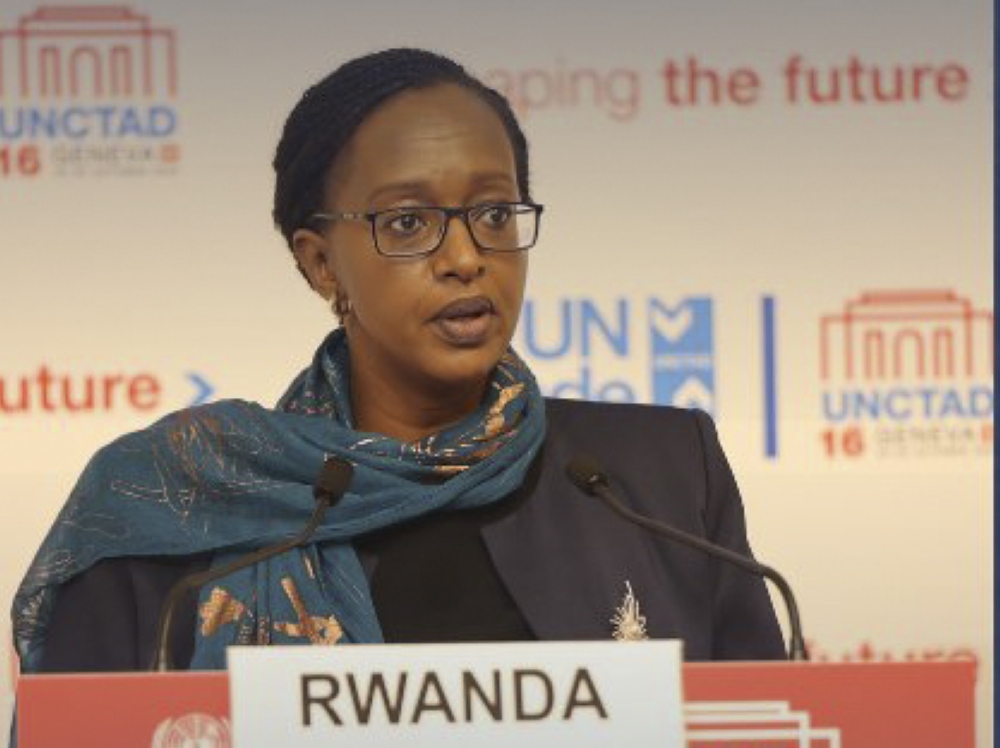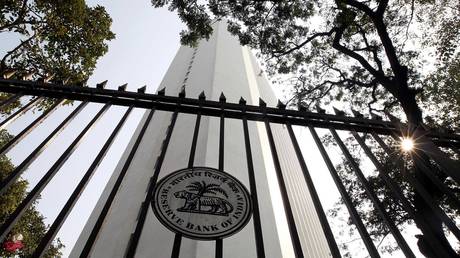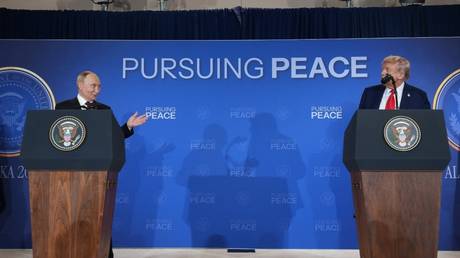Rwanda has called for a bold shift in global trade and development policies, emphasizing the need for inclusive digitalization and action-oriented multilateralism to address persistent divides in the Global South.
ALSO READ: UNGA: Rwanda calls for rules-based order, inclusive multilateralism
Delivering Rwanda’s statement at the 16th Session of the UNCTAD Ministerial Conference on Tuesday, October 21, in Geneva, Ambassador Urujeni Bakuramutsa noted that only 17 per cent of Sustainable Development Goals (SDGs) are currently on track, while the financing gap in developing countries has widened to approximately $4 trillion.
“Rwanda calls for an urgent shift from business as usual to action-oriented multilateralism,” Bakuramutsa said. She noted that Rwanda’s engagement with UN Trade and Development (UNCTAD) has been both strategic and operational, with technical cooperation delivering measurable results.
Initiatives such as the eTrade Readiness Assessment and the Investment Policy Review have informed evidence-based policy reforms, aligned national strategies with global best practices, and unlocked new pathways for sustainable economic transformation.
“Through this partnership, Rwanda has enhanced its capacity to promote digital trade, attract quality investment, and diversify exports, all of which are fundamental to building a more inclusive and competitive economy,” she explained.
The envoy urged UNCTAD to continue deploying these tools at scale, particularly for least developed and landlocked developing countries.
At the 16th Session of the @UNCTAD Ministerial Conference, Amb. @urujeniB delivered Rwanda’s Statement highlighting the need for action-oriented multilateralism, inclusive digital transformation, and sustainable value addition for resilient economies. #UNCTAD16
Read the full... pic.twitter.com/whoem3BgAP
— Rwanda in Geneva (@RwandaInGeneva) October 21, 2025
Bakuramutsa also emphasized the importance of economic diversification with value addition. She pointed out that two-thirds of developing countries remain commodity-export dependent, while services trade is becoming more dynamic than goods trade.
“Rwanda supports UNCTAD’s call for policies that expand productive capacities and move economies into higher productivity, along with greener activities,” she said.
Digitalization, she stressed, must be inclusive. UNCTAD estimates that about 35 per cent of people in least developed countries use the internet, while market concentration risks are rising. Rwanda is advocating for greater digital readiness through infrastructure, skills development, interoperable digital public goods, and fair competition frameworks.
ALSO READ: Biruta: Rwanda fully supports UN reform for efficiency, transparency
Bakuramutsa also urged alignment between climate, energy access, and trade. She emphasized the need for coherent, inclusive standards and lower barriers for green goods, coupled with support for value addition in critical-mineral economies to avoid new forms of commodity dependence.
Highlighting Rwanda’s development journey, Bakuramutsa said, “Transformative progress is possible when decisive leadership, people-centered policies, and principled partnerships align. By reforming institutions, strengthening the business environment, and investing in innovation and digital transformation, we have laid the foundations for resilient and inclusive growth.”
She further stated that the country aims to attain upper-middle-income status by 2035 and high-income status by 2050, while continuing to share experiences through South–South cooperation and learning from others.
ALSO READ: Nduhungirehe makes case for global cooperation at UN Summit of the Future
She also underscored the potential of the African Continental Free Trade Area (AfCFTA) to strengthen resilience across the continent. “AfCFTA offers a transformative opportunity for African economies by expanding markets, lowering trade costs, and diversifying into higher-value goods and services,” Bakuramutsa said.
She said the outcomes of the UNCTAD Ministerial Conference “must be concrete, time-bound, and implementable to create a global trade and development system that is truly transformative.”






